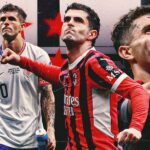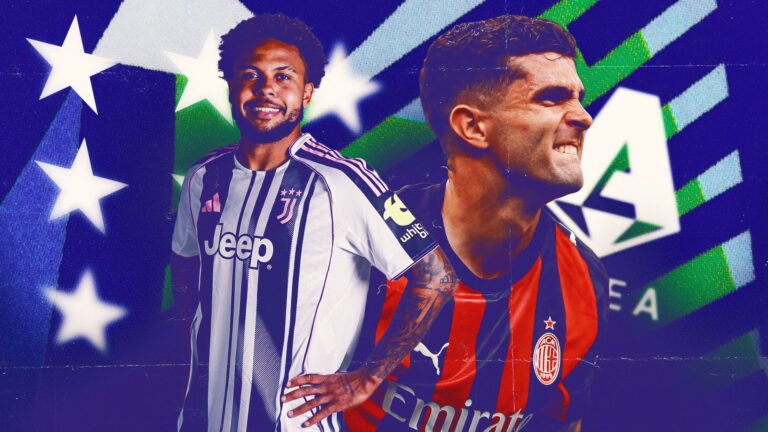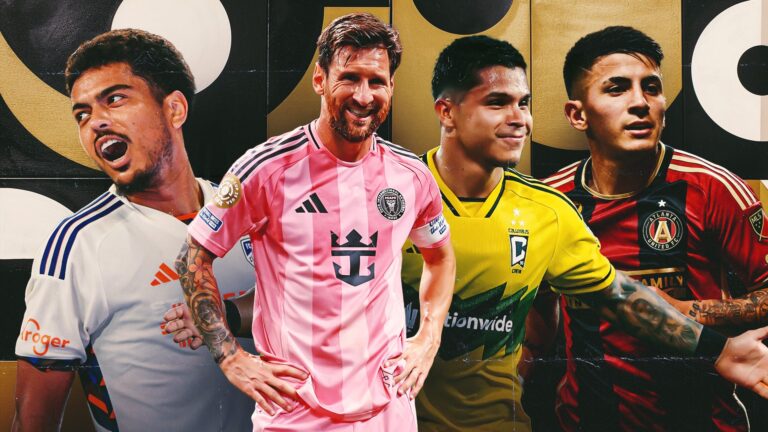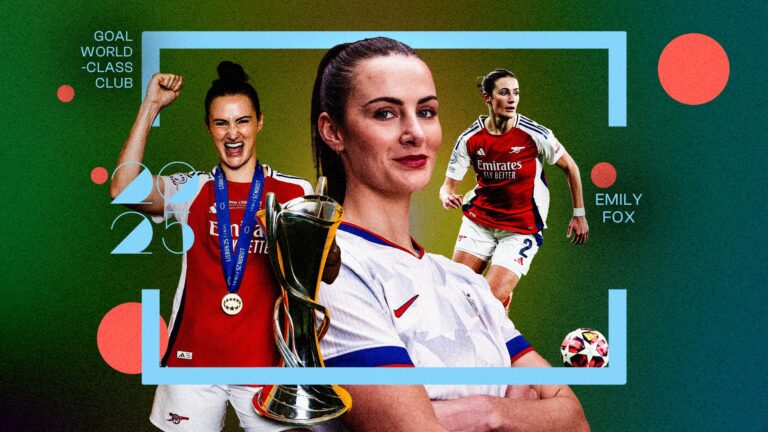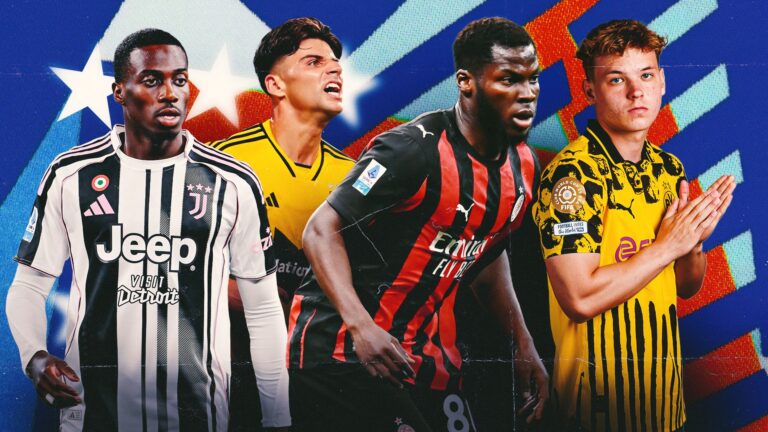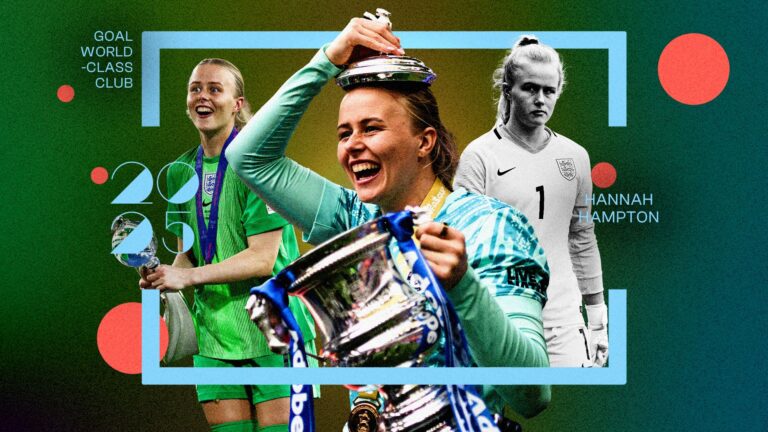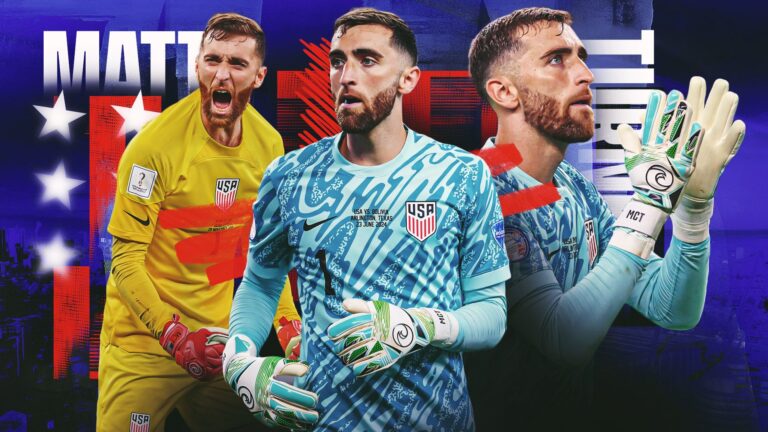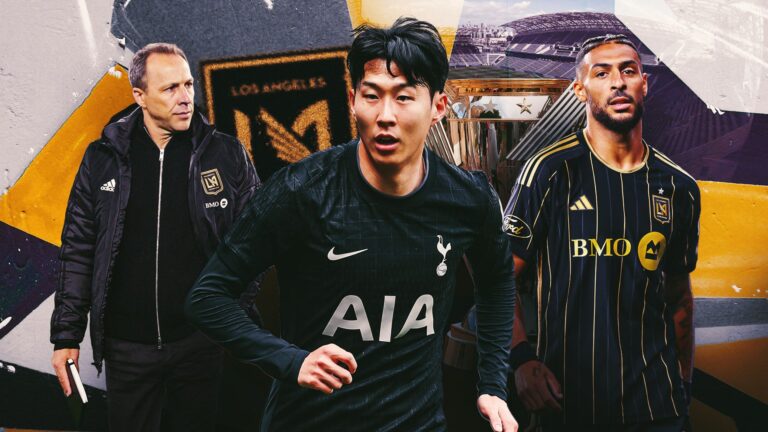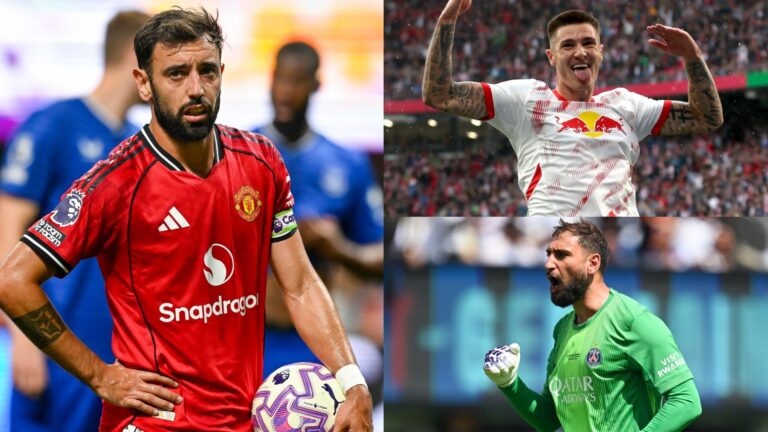There is a scene the self-titled docuseries "PULISIC" which premiered Paramount+ in December, in which Christian Pulisic is in the back of a car, presumably on the way to a media event or public appearance. The cameraman, his close friend Dan Ioffreda, zooms in on the American, and asks him to comment on the day’s proceedings.
Pulisic bats the camera away, and peers out of the window.
"It’s too early for this," he tells his friend in the otherwise pretty innocuous clip.
But that short segment – no more than five seconds – embodies not only the documentary but also the entire Pulisic persona, writ large. The series offered rare insight into a character who has always intentionally veered away from the spotlight, suddenly welcoming into his life the very the kind of attention he has always appeared to resent.
It was decent entertainment, overall, but it was also a masterclass in PR and brand building. Here’s Pulisic, juggling the ball as a kid. There’s Pulisic, playing ping pong with his dad. But look, he can also score for AC Milan against Inter and bang in goals for the USMNT. He’s a good footballer, sure, but he’s also an interesting human, the whole thing seemed to suggest.
And then it all unraveled.
Pulisic’s actions this summer – first in opting to not play for the USMNT at the Gold Cup, and then worse, giving a misguided interview in attempt to explain it – appeared a disasterclass in PR. Pulisic had spent months filming, producing and releasing hours of content to show the wider public why he was such a good guy, enhance his reputation and piece together a fine image.
Then, in two short weeks, he seemingly tossed it all away. What should have been the culmination of some immaculate brand building has instead become a contradiction – a character pulled two different ways, and failing to settle on a direction.






There is a scene the self-titled docuseries “PULISIC,” which premiered Paramount+ in December, in which Christian Pulisic is in the back of a car, presumably on the way to a media event or public appearance. The cameraman, his close friend Dan Ioffreda, zooms in on the American, and asks him to comment on the day’s proceedings.
Pulisic bats the camera away, and peers out of the window.
“It’s too early for this,” he tells his friend in the otherwise pretty innocuous clip.
But that short segment – no more than five seconds – embodies not only the documentary but also the entire Pulisic persona, writ large. The series offered rare insight into a character who has always intentionally veered away from the spotlight, suddenly welcoming into his life the very the kind of attention he has always appeared to resent.
It was decent entertainment, overall, but it was also a masterclass in PR and brand building. Here’s Pulisic, juggling the ball as a kid. There’s Pulisic, playing ping pong with his dad. But look, he can also score for AC Milan against Inter and bang in goals for the USMNT. He’s a good footballer, sure, but he’s also an interesting human, the whole thing seemed to suggest.
And then it all unraveled.
Pulisic’s actions this summer – first in opting to not play for the USMNT at the Gold Cup, and then worse, giving a misguided interview in attempt to explain it – appeared a disasterclass in PR. Pulisic had spent months filming, producing and releasing hours of content to show the wider public why he was such a good guy, enhance his reputation and piece together a fine image.
Then, in two short weeks, he seemingly tossed it all away. What should have been the culmination of some immaculate brand building has instead become a contradiction – a character pulled two different ways, and failing to settle on a direction.
The whole documentary can be encapsulated within the first 15 minutes of the first episode. The production team moves through a marquee list of VIP guests, all doing that cool look-into-the-camera-and-spill-platitudes thing. In order: Kate Scott, Olivier Giroud, Weston McKennie, Zlatan Ibrahimovic, Clint Dempsey, Yunus Musah, Jurgen Klopp and Jurgen Klinsmann weigh in. There’s insight from Pulisic’s parents, and the stereotypical childhood clips.
Everything is wonderfully curated. Klopp, the German tactical nerd, talks about “pace, power and agility.” McKennie, his long-time USMNT teammate, admits that Pulisic is a little shy – and that his decision to do the documentary comes as a surprise. Dempsey insists that Pulisic can “talk sh*t” and be “one of the boys” when you get him at the right time.
And Ibrahimovic says the most Ibrahimovic thing ever: “He’s playing low profile and feet on the ground. But that is not the case. You are Captain America, I don’t give a sh*t what you say, you are.”
It’s a perfect set of guests, people who know him really well – and others who perhaps don’t, but have a distinct point of view – painting a detailed, yet somehow remarkably surface-level, picture of the guy you want to get to know. Pulisic backs the whole thing up with his own words. When asked why he wanted to make the documentary, his first reaction was a resounding “Umm…”
And then Pulisic settles into a rhythm in front of the camera. He is surprisingly vulnerable about how he finds it difficult to talk publicly. He speaks of the responsibility of his very visible role, both at Milan and at the helm of the USMNT. He uses the word “kids” five times in the first 13 minutes alone.
All of that, in isolation, would be fine. Here’s Pulisic, the star, who has a heart. You now know a little more about him, because he opened up to the world, and with the help of other names in the soccer landscape, you can really believe that this is a normal dude who just wants to play football. That’s the constant here: football, football, football.
His dad. Mark, remarks that Pulisic is football-crazy. He has never done anything but football. He is, at one point, openly concerned that his son has no hobbies outside of football – other than golf, which he seems to play often.
It comes in massive contrast, then, with his decision not to play football this summer. Pulisic, now somewhat infamously, opted to skip the Gold Cup. It was a decision that, although entirely reasonable, sent shockwaves through the U.S. soccer extended universe. Some of the people who had backed him up left his side.
Landon Donovan and Tim Howard questioned his patriotism. Dempsey, who hailed Pulisic in the documentary and has previously been a vocal proponent, said that he would never have done such a thing in his playing days. Alexi Lalas turned on him. So, too, did the Internet. Soon, Pulisic was USMNT public enemy No. 1.
Based on the hours of docuseries content that had been released just months before, such a decision just seemed wrong. Pulisic, we are told, tries so dearly to embrace every responsibility that comes with his national team responsibilities. But now that he is tired from a long season at the club level, now that he could probably use a month off, all of those good vibes and curated images seemed to quickly fade away.
There is an art to the athlete interview. We all love a good news conference tell-all, the chance to clear one’s name. There’s a history here. Lebron James’ decision. Allen Iverson talking ’bout practice. It exists in soccer, too. Rafa Benitez going after Alex Ferguson in the 2009 Premier League title race. Eric Cantona’s bizarre comments after kicking a fan in the stands. His explanation for his actions? “When seagulls follow the trawler, it is because they think sardines will be thrown into the sea.”
Pulisic was savvy enough not to put himself in a room full of reporters. Instead, he did what you do these days, and explained himself in a podcast. He couldn’t have picked an easier one, either. Pulisic tuned in to a show with former USMNTers Charlie Davies, Tony Meola and Jimmy Conrad, and was, effectively, given the floor to explain his decision.
Pulisic, in fairness, did it quite well. He was direct, succinct, and to the point. He outlined the fact that he needed a summer off to look after his legs, and pointed out that he needed to be in good shape by the 2026 World Cup. He defended himself against the critics, saying, “You can talk about my performances, whatever you want. But to question my commitment, especially towards the national team? In my opinion that’s way out of line.”
He also revealed that he offered to play in the USMNT’s two pre-Gold Cup friendlies, but was rebuffed. The statement that summarized it all?
“It’s the coach’s decision, I fully respect that,” he said. “I didn’t understand it, but it is what it is… I had to make the best decision for myself, and in the long run my team – even if clearly some people haven’t seen it that way.”
The podcast hosts followed with a series of softball questions, which Pulisic batted away. He was thanked profusely, and then went away, back on holiday. In all honesty, a simple press release would have done.
Of course, that interview only stirred the pot further. It couldn’t have been more poorly timed – just a couple days before Mauricio Pochettino’s own news conference with the U.S. soccer media. The manager, presumably, would have had time to formulate a response. The first question was about Pulisic. Pochettino answered it – in full.
“With Christian, he explained that he wanted to be involved in the two games and, knowing that, I respect and understand him,” Pochettino said. “I understand him, but I don’t need him to understand our decisions. My position is that I am 53, with a lot of experience in football, and I was a player before I was a coach. If you want to understand this, it’s really obvious.
“It’s easy to understand that I wanted a roster to prepare in those two games because, for me, the Gold Cup is a very important competition. It’s not a problem because you need to listen and communicate.”
When pushed on if he had an open line of communication with Pulisic, Pochettino rubbished any suggestion of a rift.
“When I signed my contract with the federation, I am the head coach. I am not a mannequin,” he said. “But this is how we are and that is my culture about football. I know that the communication has gone very well because, in March, I was talking a lot about the World Cup, a lot about the different things that I’m not going to discuss. Because, for me, it’s private. But, yes, I have good communication with him.”
Those comments on June 14, ahead of what would be the USMNT’s run to the Gold Cup final, largely quashed the discussion. Pochettino said his bit, and was asked about the situation here and there again throughout the tournament – but managed to keep the focus on the football. Job done, from his point of view.
So where does that leave Pulisic? That fact that he missed the Gold Cup doesn’t matter in a footballing sense. Pochettino took a squad consisting largely of backups into the tournament, beat the teams he was supposed to beat, and lost to the one team they were outclassed by – Mexico – in the final. It was generally a good summer for vibes, all in all.
Pochettino got to see a few players who might not have been in his thoughts for the national team. Diego Luna looked good. Malik Tillman impressed. Chris Richards looks more and more like his ceiling is higher than Crystal Palace.
Christian who?
And that’s kind of the point. The central thesis of “PULISIC” is that there is so much about him that is unsaid, so little that is known. He is a shy guy who doesn’t like talking – to the camera or his teammates. The easiest way to frame him, then, was as this elite footballer, at his most comfortable talking about or, ideally, playing football. That is where you seen the real Pulisic, the guy who would do anything for the badge.
And after all of that PR, hours and hours of content and the press tours that went alongside it, that central thesis has been battered, if not completely fallen apart. Who is Christian Pulisic? The documentary attempts to confront that question. His absence from football this summer – or more specifically, the way he handled it – might give you the real answer.

